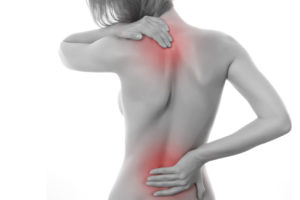Online medical help is it supplementary, central, critical or damaging?
I appreciate there is some irony in writing a blog about the pitfalls or benefits of online medical help. But I can add that I am a physiotherapist with 10 years clinical experience and a MSc post-graduate education in physiotherapy. It is up to you to decide the value of what is written and hopefully this post will give you some idea of whether or not you should trust these words.
A Facebook post that I once saw demonstrates some of the pitfalls with getting online medical help. The post was from a so-called personal trainer (I cannot state this individual’s actual qualifications, so don’t want to tarnish all with the same brush). The post advised that no one should ever do crunches in the gym. The reasoning was that a human spine is like a credit card- it can only bend so many times in a lifetime before it breaks! (Spoiler warning- this is a load of rubbish). The idea of people believing this and imagining themselves, and their spines, as some form of Alice in Wonderland playing card type character is amusing, but also rather concerning. Scientific investigations, published in peer-reviewed journals suggest long-term backpain related disability is frequently linked with fears surrounding the vulnerability of the spine. So, the credit card analogy is not only false but in fact potentially harmful.
The above story is just one example of the wider topic of seeking medical help or information online. Naturally when we are confronted with situations that we cannot explain we seek further knowledge and insight. Pain exists as a wake-up call for one to take action, so the body is actively stimulating us to find out more. Traditional sources of knowledge are still utilised, close relatives and friends and local doctors for example. But this knowledge may not be as convenient or quickly available as picking up our phones and typing in a question. This action is fully understandable and of course potentially helpful. The individual suffering from any aliment is likely to have good insight into what they are feeling and experiencing, meaning they are therefore in a good position to help solve the puzzle. But if we are searching for help online how do we make sure the information we are looking for, in terms of medical help, is valid, reliable and safe?
There are checklists, guidelines and methodological books that explain in detail how to analyse and judge scientific evidence’s worthiness. But we can’t analyse every piece of information to that kind of detail, when we just want to gain some greater insight or tips. We aren’t all going to jump onto PubMed (a medical science type of search engine) and search for the latest review or meta-analysis of the best treatment available for a particular ailment. A somewhat faster judgement can be made by asking some simple questions;
– Who/what has provided the information online and are they are respected institution or educated individual?
– Is this a journalistic piece aimed at attracting attention, shares and likes, or sparking debate?
– Is it straight up advertising?
– Could the person writing or sharing it have some financial incentive to do so?
– Does the information/advice piece claim that everyone can benefit regardless of individual differences? Or does it seem to promise a simple fix to a long standing or re-occurring problem?
o For example, by stating just ONE magic stretch can solve back pain that you have had for years. Or by just not eating bread all your inflammation will disappear. ‘
By answering these questions we can make a quick judgement of how trustworthy the information is likely to be and whether we want to act on it. Journalistic pieces often sensationalise scientific results to grab attention, adverts clearly want to push their product, individuals may have endorsement contracts or they just have had personal experience with one magic stretch and think everyone would feel good if they just copied it.
Now clearly some online suggestions are less likely to be troublesome than others. Trying out a simple stretch to see if it helps, one that has cost nothing and can be disregarded if it doesn’t work might be worth giving a go. But if the advice is to avoid or give up other mainstream treatments, or require you to purchase something, or require a visit to a given individual, as they are the “only person” capable of treating this problem, then the questioning might need to be a little sharper.
Being critical of the source of the information and considering the motivation behind the information are the first steps in making a sound judgement. Making a sound judgement can aid health, decision making and avoidance of the spreading of debilitating myths.




